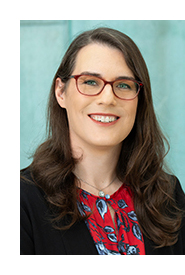PROFESSOR EMILY SPOTTSWOOD’S ARTICLE ACCEPTED FOR PUBLICATION BY TULANE LAW REVIEW
 May 2024 — Professor Emily Spottswood’s article, “Victims as Fact-Finders,” was accepted for publication in Volume 99 of the Tulane Law Review.
May 2024 — Professor Emily Spottswood’s article, “Victims as Fact-Finders,” was accepted for publication in Volume 99 of the Tulane Law Review.
Emily Spottswood is a Visiting Professor at Penn State Dickinson Law, and her work focuses on issues relating to the fairness of the trial process. In “Victims as Fact-Finders,” she discusses the widespread tendency of both attorneys and judges to exclude the victims of past crimes from serving as jurors in criminal cases. Her article first illustrates the pervasiveness of the practice, which can arise either through a trial judge’s power to exclude jurors for cause based on potential bias, as well as through the use of peremptory strikes by trial counsel. She then shows the many harms that flow from the practice of victim-exclusion. In particular, she shows that excluding victims undermines the legitimacy of the trial process, that it worsens existing tendencies to under-represent members of marginalized communities on juries, and that it transmits harmful messages regarding the status and equality of victims as members of our civic polity. In addition, she illustrates the flaws in the oft-assumed justification for excluding victims, which is that their alleged partiality towards other victims will corrode the accuracy of trial verdicts. To the contrary, she shows how the unique knowledge that victims have as a result of their painful experiences can enrich deliberations and improve a jury’s ability to determine the truth or falsity of allegations. She concludes the piece by offering practical ways that judges can encourage jury service by victims who are willing, without creating undue risk of further traumatization through their service. She previously presented an early version of this paper at the Evidence Summer Workshop at Vanderbilt University in May of 2023.
Professor Emily Spottswood focuses her research on the process of fact-finding in courts, including issues in evidence law, jury decision-making, the structure of trials, and pre-trial procedure. One strand of her recent work focuses on probabilistic reasoning and the optimal structure of burdens of proof, arguing that varying sanctions continuously in response to varying levels of confidence in guilt has a number of important advantages relative to the all-or-nothing approach that presently predominates in our trial process. In other work, she has drawn attention to a number of structural biases in the design of jury trials, including problems that may stem from default approaches to the ordering of evidence as well as the suboptimality of standard jury instructions concerning conjunctive and disjunctive reasoning.